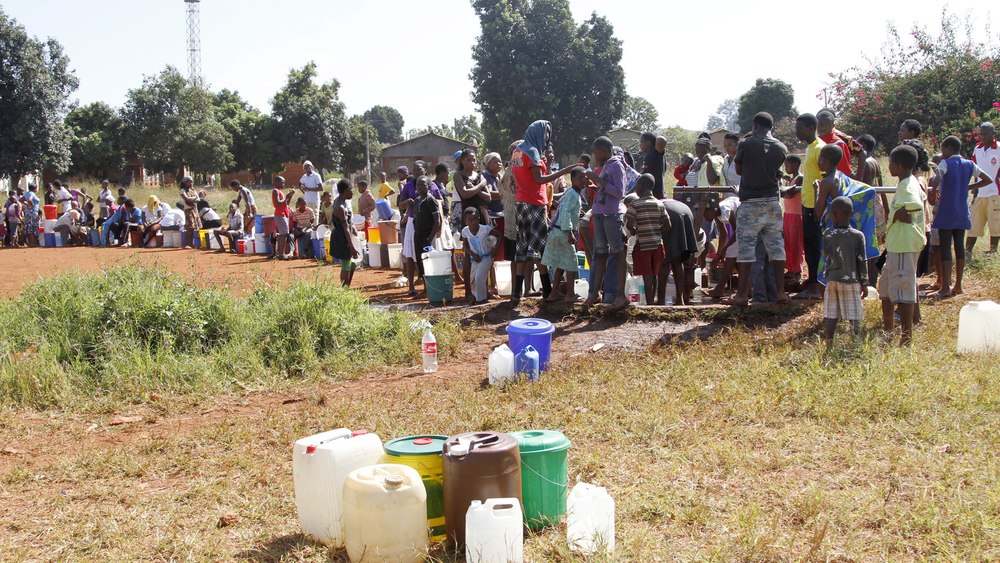By Kudakwashe Vhenge
Local civil society, Centre for Conflict Management Transformation (CCMT) is engaging citizens through workshops meant to curb conflicts.
CCMT recently held a series of training workshops in Epworth, Mbare and Chitungwiza aimed at reducing violence arising from disputes over access to water.
Through the trainings, CCMT sought to transform the ways in which society deals with conflict in the country, participants were drawn from Water Points Committee Members of various water points in the respective suburbs.
Access to clean water which is essential for maintaining individual and public health has become a nightmare for most Harare residents who have now resorted to the use of alternative sources mainly boreholes.
The scrambling to get enough clean water to drink, prepare meals and attend to basic hygiene has resulted in negative economic and social effects especially at water points.
Such negative include physical and verbal abuse.
CCMT research and advocate coordinator, Shadreck Vengesai explained that what compelled them to come up with this exercise was incidents of violence and conflict that are now common at water points in urban areas as typical with any scarce resource in any given area.
“What necessitated this exercise is the realization that as a conflict transformation organization owing to the draught emanating from 2019, 2020 rainy season, water has become a very scarce resource and water points have become hubs for violence and political contestations. Whenever a resource is in scarcity, competition for such a resource results in conflict.
“This intervention is aimed at bringing sanity at water points by trying to make sure that the committees that are mandated with roles and responsibilities of managing the water points do so in such a manner that ensures equal access to water by everyone also minimizing conflicts and violence at water points”, he explained.
Vengesai added that they deliberately chose to direct their attention towards high-density suburbs that are prevalent with acts of violence and that they desire to see minimal conflicts.
“We are mainly targeting areas that are most hit by the scarcity of water and we are also looking at areas that are traditionally considered to be hot spots of violence such as Mbare Chitungwiza and Epworth. Whenever violence takes place in Zimbabwe or in Harare these are the areas that are affected most by violence so this is the reason why we deliberately targeted these areas.
“We expect to see good governance at the water points, we also expect to see all the water point users getting equal treatment as well as very minimal incidents of political contestations and less politicization of access to water as well as an end to sexortation and gender based violence at water points”, he added.
As the country commemorates 16 days of activism against gender based violence, it is worth noting that rape cases and gender based violence have since become common at boreholes in urban areas.
Speaking to this publication on the sidelines of the training workshop, Casper Chimhuka (34) of Matapi flats in Mbare who is a health facilitator at the water points said he benefitted a lot on how best he can impart his knowledge to water point users on the best practices that limit the transmission of covid-19.
Water has been noted as part of basic preventive measures to the corona virus disease as prescribed by the World Health Organization (WHO).
Richard Kasama of ward 6 in Zengeza 5 Chitungwiza who is also a Limbani water point committee member said he has benefitted from the learning exercise which afforded him the opportunity to cross pollinate ideas with other water points committee members.
“I am glad to have been provided with this exercise as I have seen some of the practices that are being applied by other committee members elsewhere that we had not adopted at our water point. This coupled with the knowledge that we have been given by our facilitators will surely enhance the manner that we will manage our water point when we get back home,” he said.
While lack of access to clean and affordable water have been sprouting in mining and farming communities resulting in conflicts, the same situation has become prevalent in most urban centers calling for the need of serious intervention in order to curb this anomaly.
